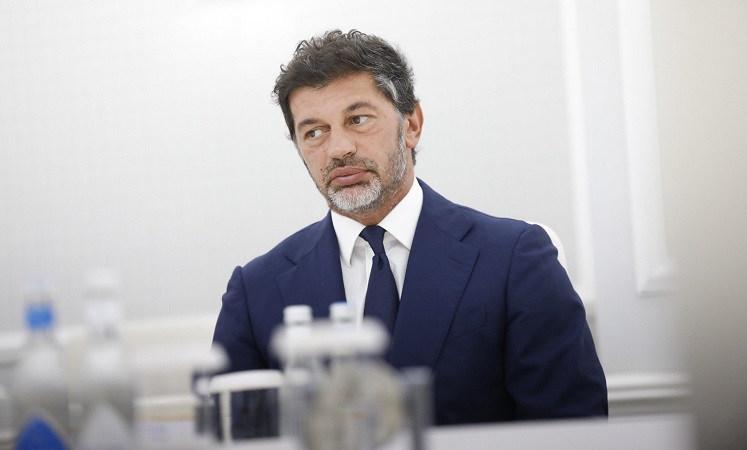Tbilisi Mayor highlights “no alternative to peace” on anniversary of fall of capital of occupied Abkhazia

In his remarks, Kaladze noted the date was “one of the most difficult and tragic” dates in recent history of the country. Photo: Tbilisi City Hall
Kakha Kaladze, the Mayor of Tbilisi and the Secretary General of the ruling Georgian Dream party, on Wednesday highlighted there was “no alternative to peace”, in comments marking the 30th anniversary of the fall of Sokhumi, the capital of the Russian-occupied north-western region of Abkhazia during the war in the region in 1993.
In his remarks, Kaladze noted the date was “one of the most difficult and tragic” dates in recent history of the country.
“This date, of course, is equally painful for each of us, for each Georgian. The [lost] lives of our civilians, our heroic fighters, the displaced population, the divided Georgia followed this day”, Kaladze said.
I would like to pay tribute to the memory of those who sacrificed [their lives] for the territorial integrity [of the country] and I would like to emphasise that there is no alternative to peace and development, so that our homeland can be reunited and we can all build a better future together. I am sure that we will be able to return to each other and live together”, he concluded.
The armed conflict in Abkhazia began on August 14, 1992 following an entrance of Government forces of a newly independent Georgia into the region with the goal of defending a section of a strategically important railway in the region amid tensions between ethnic Abkhazians and Georgians, with the Government units confronted by Abkhaz paramilitary forces on contact.
The resulting year-long-conflict saw Russian material, tactical and operational support for Abkhaz forces, in addition to mercenary groups from the Caucasus republics of Russia also fighting against troops of the fledgling Georgian state.
The regional capital of Sokhumi fell after the Abkhaz side violated a ceasefire agreement between the sides on July 27, 1993 and launched an assault on the city on September 16, after the Georgian side had withdrawn most of its defences as per the agreement.
On September 27, the attacking troops captured and killed Zhiuli Shartava, the Chairman of the Council of Ministers of Abkhazia, as well as Sokhumi Mayor Guram Gabeskiria and 27 other Georgian officials of the executive body who had stayed in the offices of the regional Government in the city, with the event marking the fall of the capital.
Between 13,000 to 20,000 ethnic Georgians and approximately 3,000 Abkhaz have been reported killed during the conflict, which lasted for 13 months and 13 days. Over 250,000 Georgians fled the region and became internally displaced in the country, while more than 2,000 - including about 1,500 ethnic Georgians, up to 200 ethnic Abkhaz and about 100 ethnic Ossetians - were declared missing.
 Tweet
Tweet  Share
Share